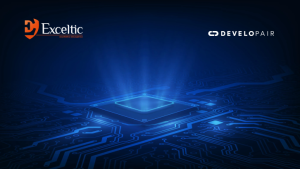Blockchain is considered one of the most disruptive tools of the moment. A concept that is bringing about a new revolution in all kinds of areas.
The idea was born around 2008 and with its use, a new model of authentication is proposed, in which no transfer of value is made through intermediaries, but through a network of nodes or computers connected to the network, achieving with transparency the collection of truthful and authentic information.
Transactions are carried out, recorded as "data blocks", which are connected and form an irreversible succession. In short, it is a a database or digital registry that stores information in the form of a blockchain distributed among many nodesachieving greater security, thanks to its cryptographic encryption.
TYPES OF NETWORKS
- Public networks: a decentralised network, where anyone can join and participate. It requires a lot of computational power and security is weak, as it provides little privacy.
- Private networks a decentralised peer-to-peer network, similar to the public network. In this case, the owner is in charge of administration and control of who has permissions to access, running the protocols, and performing maintenance.
- Authorised networks impose restrictions on participation in the network and its transactions by means of an invitation or special permission. Although public networks can make use of these restrictions, it is the owners of private networks who will generally make use of them.
- Consortium: several companies share the responsibilities of maintaining a blockchain. These organisations decide who has access to transactions or access to data.
BENEFITS AND ADVANTAGES
- Trust: Blockchain provides the assurance that members of these networks, especially if they are private, receive accurate and timely data.
- Security: transactions in this chain system are unalterable and permanent. It is recommended that a consensus on accuracy be reached among all members. In addition, its blockchain structuredecentralises the stored data and makes it extremely difficult to hack, falsify or lose data.
- Efficiency: record reconciliation action times are eliminated and transactions are speeded up thanks to a set of rules known as a "smart contract".
- Velocity: transitions are almost instantaneous as no intermediaries or third party verification are needed in any case, saving time and costs.
USES
We usually relate this technology to cryptocurrencies, but as we have already mentioned, this technology goes much further and is also widely used in many other areas.
Perhaps one of the most curious uses of the Blockchain is linked to the food industry and the tracking of products through to final distribution. This application allows consumers to know where food comes from, ensuring sustainability and quality.
The blockchain is also very present in the energy sector, as it enables the creation of networks between different households for the purchase and sale of surplus energy produced. There are several projects dedicated to the exchange of renewable energy and electricity and gas transactions, thanks to the enabling of economic transactions exclusive to the network.
Thanks to the numerous cryptocurrencies that are currently on the market, some banks have the possibility to make secure, transparent, fast and efficient transactions without the need for intermediaries.
In addition, it has also brought great opportunities to other sectors such as logistics, commerce, real estate, insurance and healthcare. It can identify counterfeits, provide more accurate data for investigations and prevent the spread of diseases, optimise privacy, etc.
Blockchain is undoubtedly a technology that underpins the functioning of cryptocurrencies, but its possibilities are infinite. It has an enormous field of action and the possibility to combine with other technologies such as the IOTThe new technologies have brought about major transformations in projects and businesses.






